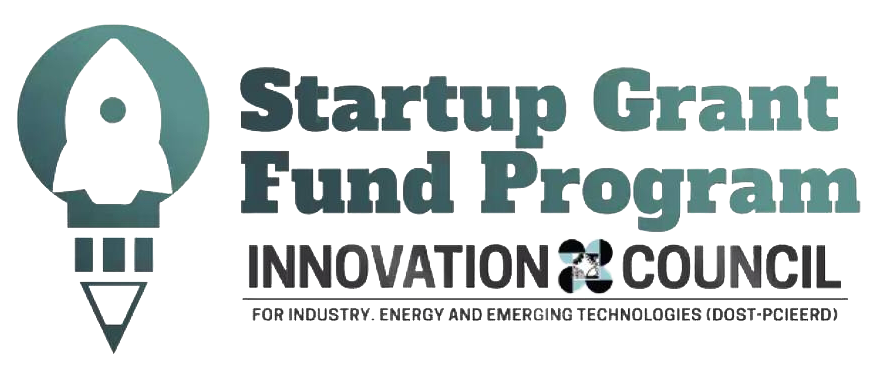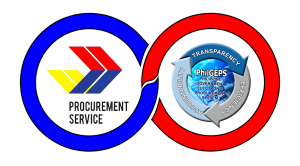
The Philippine eCommerce market size by 2030 will be at $258B GMV (Gross Merchandise Values). Here’s why you shouldn’t miss the opportunity of getting into eCommerce.
We’re all familiar with the convenience and efficiency that eCommerce brings to daily consumers and businesses. You visit an eCommerce store, search for products you want to purchase, order, and choose to pay online or on delivery. The next thing you know your purchased items are delivered to your doorstep. The solutions of the eCommerce industry have made lives, systems, and businesses easier to purchase items effortlessly to a certain extent that it doesn’t require for us to directly talk to sellers unless in terms of pricing negotiations in huge quantity orders.
The innovation of eCommerce is not relatively new since it has been servicing people, consumers, and businesses since the 1990s. But recently the eCommerce industry has shown a massive amount of growth and it doesn’t show signs of slowing down. This article will impart knowledge of eCommerce; it’s pain points, challenges, solutions, and opportunities for businesses in the coming years.
The eCommerce Industry: During and After the Pandemic

Due to the recent events of the pandemic with heavy restrictions and implementation of social distancing, the majority of retail stores were closed down due to the alarming concerns of public health safety. With almost everyone being quarantined at the safety of their homes, the economy slowed down as a result; stagnation of sales in unessential products and goods. But eCommerce platforms rose for the job to carry sales and retail on its shoulders as the need to shop for products for both consumers and businesses were rising.
Now that the pandemic is getting less and less restrictive than a year ago; allowing people to go out and corporate businesses operating physically, sales were even better as compared during the dark times of the pandemic.
So, the question is, is eCommerce going to trend downwards since people can go out and purchase products physically now? The answer is a strong No.
Ecommerce is mainly to stay as the COVID-19 not only opened the opportunity for eCommerce to boom, but also it has boosted its sustainability of growth in the following years according to UNCTAD.
Ecommerce platforms offered more than just having the ability to purchase products while in quarantine, but it also left a mark for consumers and businesses alike the convenience and availability of products and efficiency of the shopping experience whenever and wherever they are. Ecommerce is booming and doesn’t show any signs of slowing down as most people heavily relied on the services of eCommerce.
The Difference Between B2B eCommerce vs B2C eCommerce
What is B2B
B2B stands for business-to-business which is a relationship between two or more businesses for its transactional needs. Typically a B2B transaction has more order volume which comes with better pricing and tiered discounts. A great example of a business-to-business transaction is when a business purchases its office supplies (such as office desks and ergonomic chairs) directly from the direct business supplier in bulk with tiered pricing and discounts.
What is B2C
The most common and popular market around the world is B2C, which stands for business-to-consumer. B2C transactions can be seen everyday from malls to online marketplaces where the majority of customers that purchase products, goods, or services are for their personal use. Typically B2C transactions are only in small quantities considering customer’s needs, financial capability, and utilization. An example of a B2C transaction is when a consumer or customer purchases an iPhone 14 from Apple stores whether in its physical or online store.
The opportunity: Did you know that 74% of Business in the Philippines Have No B2B eCommerce Channel According to DTI E-commerce Baseline Survey of Digitizations of SMEs? 23% of businesses have no digital tools, 51% use email for their business, 21% of businesses use email & website, while only a population of 6% has utilized email, website, and digital advertising tools. The large market of businesses in the Philippines has still yet to tap into the vast potential pool of eCommerce in upgrading, upskilling, and upsizing their business.
How Big the eCommerce Industry in the Philippines will be by 2023: The eCommerce Market

In 2022, the Philippine eCommerce industry market is valued at $19.8B GMV or ₱1,165,457,700,000 (including both B2B and B2C markets) and Shoppable Business is valued at $300M or ₱ 17,658,450,000.00.
In projection for the next 3 years in 2025, the Philippine eCommerce industry market will be valued at $70.3B GMV or ₱4,144,888,000,000 (including both B2B and B2C markets) and Shoppable Business is seen to be valued at $880M or ₱51,884,800,000 which is 3.64x compared to 2022.
By, 2030, the eCommerce market in the Philippines will evaluated at $258B GMV or ₱15,198,909,000,000 (including both B2B and B2C markets) and Shoppable Business is aiming to be valued at $5.7B or ₱96,756,941 which is a 4.05x compared to 2025, and 14.76x growth in 8 years.
The Pain Points of B2B eCommerce: Buyer & Seller Perspective
Although eCommerce has been around since the 1990s, its recent boom has certainly made the lives of consumers and businesses easier. We all refer to the saying “there is more room for improvement.” which applies and is heavily relevant in eCommerce marketplaces. Here are some of the pain points of B2B eCommerce and how this particular Next Gen B2B Marketplace: Shoppable Business takes it up a notch to unravel the main pain points of B2B eCommerce.
Pain Points: Buyer Perspective

Pain point #1: Fake Products
There are probably a lot of online shoppers that have at least once or twice experienced a counterfeit transaction online. And worse, if it’s a B2B transaction, it can bring more damage to your business, resources, and productivity. As a business, procurement is an essential part of your business as it fuels your business operations. Businesses would want to certainly avoid getting fake and inauthentic products as it can certainly compromise your business operations.
The Shoppable Business Solution #1: Compliance & Barcodes
Shoppable Business certainly took the time to create a solution to eliminate 100% of scam, counterfeit, and fraudulent transactions in an eCommerce marketplace. Shoppable Business is partnered with GS1, the gold standard for product authentication through barcodes to promote a 100% authentic product-filled marketplace, together building a smarter and better approach for business procurement and improved consumer shopping experience. The smart and better approach of Shoppable Businesses enables businesses to shop and procure products without the worry of purchasing fake products in its marketplace.
Pain Point #2: Product Selection
With over a million products in eCommerce marketplaces, it can be quite difficult to find which products you’re specifically looking for, plus, a flooded marketplace with replicate items which will confuse you over which products are fake and authentic.
The Shoppable Business Solution #2: Wide Selection of 100% Authentic Products
Shoppable Business offers businesses and consumers a wide selection of 100% authentic products in its marketplace. Businesses can confidently procure their products
Pain Point #3: Corruption
If you’re not aware, corruption is also one of the biggest problems of most eCommerce platforms. Sometimes, scammers breach customer and merchant data privacy to intercept transactions between the buyer and the seller. Fraudulent activities in eCommerce marketplaces are experienced by buyers and sellers where scammers and counterfeit products in a commercial transaction are done for the benefit of their own financial gain.
The Shoppable Business Solution #3: Online Payments & Direct to Supplier Communication
In an eCommerce marketplace, buyers and sellers have two goals in mind. To buy and sell products with the convenience and efficiency for both buyer and seller side. But of course, online transactions are vulnerable to online attacks that would lead to fraudulent activities and such. Shoppable Business values data privacy whether you’re a buyer or a seller and ensures that online payments and transactions are directed to only the merchant or supplier. In Shoppable Business, your payments and transactions are directly sent to the rightful buyer and seller, not allowing third parties to meddle with transactions.
Pain Point #4: Consumer Pricing
If you’re a business looking to procure products and items for your business in an eCommerce marketplace, it would be very challenging to find sellers that offer wholesale and discounts on bulk orders. As a business, you want to purchase items at the lowest possible pricing at the highest value possible. Searching in a marketplace that only caters to consumer pricing per product won’t get you anywhere.
The Shoppable Business Solution #4: Bulk Discounts & Bulk Deliveries
If you’re a business looking to shop items and products in an eCommerce marketplace with a plan in mind for business procurement, it would be ideal to shop items in a B2B marketplace. Shoppable Business, from its very core, is a B2B marketplace that caters not only to daily consumers, but heavily targets businesses for their procurement needs. With Shoppable, your business can choose from a wide range of authentic and branded products with the availability of product negotiation, bulk discounts, tiered pricing, and access to bulk deliveries as requested for your business purchases.
Pain Point #5: Collateral Financing
Let’s say you’re a business that wants to make the most out of your financial resources but you also need item and product procurement required for your business. Doing a loan with collateral can be quite pressuring for your business as it has the need to always catch up on payments. And if you don’t, you’ll be putting great risks to your business assets.
The Shoppable Business Solution #5: No Collateral Financing
Doing business with Shoppable allows you to procure items and products with no collateral financing. You can purchase items on a loan without having to worry about putting your businesses assets in jeopardy.
Pain Points: Seller Perspective

Pain Point #2: Logistics
Most eCommerce marketplace Orders, purchases, and deliveries take days to deliver and send to your customer’s doorstep. As a seller, delivering your products to the right customers fast is a must in the fast paced industry. Most eCommerce marketplaces only have a few select logistics providers which doesn’t enable a same-day to next-day delivery process for your eCommerce Store.
The Shoppable Business Solution #2: Integrated with Multiple Logistics Providers
Shoppable Business is partnered and integrated with multiple logistics providers and 3PL companies that would make same-day to next-day deliveries possible for your customers.
Pain Point #3: Payments
Most sellers in eCommerce don’t have the right access to online payment solutions. Well, cash on delivery is always an option, but processing bulk orders, transactions, and purchases, especially dealing with B2B transactions. It can be quite difficult to handle as bulk transactions equates to huge amounts of cash, and cash on delivery won’t cut it.
The Shoppable Business Solution #3: Online & Offline Payment Integrations
Shoppable Business have partnered with well-named and trusted banks in the country namely, BPI, RCBC, UnionBank, and many more to handle your B2B transactions. Businesses purchasing on your eCommerce store have the option to pay online through credit/debit transactions or choose to pay by cheque, making transactions easier to handle and less time consuming.
Pain Point #4: Digital Marketing
Digital marketing in an eCommerce platform can be quite expensive when not utilized effectively. Putting up your product or brand advertisements on the front page, panel page, or even at check out can cost you if no one’s batting an eye on it. Setting up digital marketing ads will make you pay upfront without the guarantee of sales conversion.
The Shoppable Business Solution #4: Free Marketing Sellers Only Pay When an Item Sells
Marketing your products digitally with Shoppable Business enables your sales and marketing strategies to be more effective through its free marketing program. Sellers only pay for the advertisement tools when they meet conversions sales per ad. Your store won’t have to make unnecessary additional payments on marketing your products and only pay once you make sales.
Pain Point #5: No Inventory Financing
As a seller, ensuring that your inventories are always on stock is integral in making sales and growing your business. You wouldn’t want to miss out on opportunities and buyer relationships just because you lack the quantity or inventory to support your customer needs.
The Shoppable Business Solution #5: Inventory Financing & Working Capital for Sellers
Stocking your inventory is not a problem with Shoppable Business. If you don’t have stocks at the moment and don’t possess the resources to re-stock, you can choose inventory financing as your back-up plan. Inventory financing allows sellers to take advantage of sales by loaning funds to fill their inventory when needed. Shoppable Business will provide you with working capital and pay later so your store won’t be missing out on sales figures.

The Next Gen B2B Wholesale Marketplace: Shoppable
Shoppable Business aims to enable companies to make smarter buying decisions through our B2B Platform. With its solutions, Shoppable Business will largely contribute to both B2B and B2C eCommerce market value in the Philippines, making it more accessible and better for business to procure items and products.
Shoppable Business primarily aims to make the procurement process of businesses in only under 5 minutes. Where businesses can procure items and products with just a few clicks of a button, just like shopping in a consumer marketplace without the long, tedious process of approvals and back-and-forth paperwork process for procurement.
How Shoppable Business is Different from Other Marketplaces
✓ All buyers and sellers must be a legally registered business in the Philippines
✓ Financing available for both buyer and sellers
✓ Refer your existing customers onto our platform and enjoy 0% marketplace fees on all of their orders!
✓ Sales Invoices are Provided for Every Sale
✓ 2307 forms for businesses that require it
✓ 100% Authentic branded products only, no fakes or non-branded products allowed
✓ Same Day Shipping for select products
✓ Installation Services and scheduling within the platform for select products
✓ Product Cataloging – all products listed on our platform go through a Quality Assurance process to ensure product details are accurate such as technical specs, descriptions, images and categories
✓ BuyBox Technology – Sellers with the best performance win the BuyBox and customers can also buy from other sellers on the same listing, eliminating the problem of duplicate listings in the search results
✓ Sellers can provide tiered discounts to customers
✓ Recurring subscriptions for customers who need deliveries occasionally
✓ Procurement tools such as single purchase orders, buying policies per department, split order fulfillment, reporting, and multiple payment options
✓ All items sold must be located in the Philippines, no cross-border selling allowed
Here’s why you should join Shoppable…
- It’s FREE – It’s free to start selling on the Shoppable platform. As long as you’re a legally registered business, you’ll be able to list products for free on Shoppable. You only pay a commission if an item sells on the platform, and you get paid.
- Expand your Customer base – Through Shoppable, you’ll reach thousands of new customers for free. Think of Shoppable as your marketing arm that you only pay when you have a sale.
- Get your eCommerce Store – Increase sales by digitizing your product catalog and reaching customers worldwide. Print catalogs are dying, costly, and not environment friendly – digital is the future. Sellers can get their eCommerce store on Shoppable Business that can be given to any client.
- Procurement Technology – Enable your customers to pay you online through Bank Transfers, Credit Cards, Over-the-Counter Payments, Recurring Payments, and more. Easily track and manage orders, payments, and shipping through the Shoppable platform.
- Shipping Technology – Shoppable has integrated directly with multiple shipping couriers, enabling you to provide same-day to next-day delivery to your customers.
- Compliance – Sales invoices and 2307’s required? Don’t worry. Shoppable has got you covered! The platform keeps sellers fully compliant, never worrying about missing documents.
- 3PL & Fulfillment Services – Need additional manpower? Shoppable can provide you with warehousing and fulfillment solutions so you can expand your brand to different locations enabling you to get products delivered faster to your customers.
- Real Sellers, Real Buyers, and Real Products only – We vet and interview sellers that join the platform, so you will be assured that all of the products and transactions are authentic and legitimate.
Why you should be a Shoppable Business Buyer:
- No fake products, 100% authenticity guaranteed for every purchase
- Wide Selection of Products available with super-easy filtering and search features
- Enjoy bulk discounts on select products and scheduled bulk deliveries
- No Collateral Financing needed
- A number of online payment methods you can choose from for your convenience
- Anyone can use the platform. IT’S NOT ONLY FOR BUSINESS; any individual can sign up and enjoy the pricing and perks that Shoppable Business brings!
- Sales Invoices are provided for every Sale
- Same-day shipping for select products
Why you should be a Shoppable Business Seller:
- Low marketplace fees
- List your products on Shoppable For Free
- Expand your Customer Base
- Get your free eCommerce store
- Multiple Payment methods accept every major credit card, digital bank, e-wallet, and checks.
- Integrated with multiple shipping couriers
- Free onboarding and listing of your products (limited time only)
Takeaway
There is no doubt that the eCommerce market in the Philippines is still fresh and still has a lot to improve on, but it is growing at a considerably fast pace. Although a large percentage of businesses still have no access to online and digital channels, there will come a time that every sales, retail, and businesses will be heavily supported by eCommerce or online retail. The large potential that comes with running your business in eCommerce will absolutely bring opportunities for businesses around the country.
So, don’t lose the chance in taking your shot in joining the next generation B2B eCommerce marketplace, Shoppable Business for FREE and get early access to its marketplace. Together, we will enable smarter buying decisions for business and customers in the Philippines.









